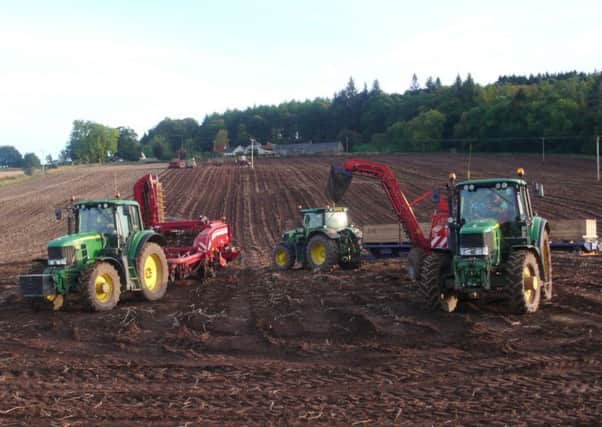Decision time looming for Europe's arable farms


That was the message given at a major crop protection conference in Dundee this week by a leading expert in the development of new products for the control of pests and diseases in crops.
Dr Rosie Bryson, of plant protection company BASF, said that the loss of diversity in crop pesticides due to legislative pressures could lead to substantial difficulties for arable farmers in the foreseeable future: “Farmers whole crop rotations may need to be rethought, fertiliser inputs managed to reduce pest and disease impacts, cultivation techniques changed to reduce the impact of weeds and cropping timings adapted.”
Advertisement
Hide AdAdvertisement
Hide AdShe said that the removal of and restrictions placed on the use of existing pesticides, together with the slowdown in the development of new active ingredients, was leading to heavier reliance on fewer products – a situation which she said would inevitably encourage resistance in pests and diseases to the remaining products.
Even if researchers were able to use the full armoury of measures, Bryson said there were unlikely to be many “quick wins” to problems arising in the future. But she added that Europe had already suffered from the loss of research and development investment in genetically modified (GM) crops as companies like her own had realised that political pressures meant that such investments were unlikely to bear fruit on the continent.
“The impact of the loss of crop protection chemicals is likely to be one of slow erosion and restriction rather than dramatic.
“As an industry we must wake up to what the changes may mean and how we deal with them.”
The Scottish Government’s chief agricultural officer, David Barnes, who also spoke at the event attended by scientists, researchers and crop consultants, was quizzed on what many in the audience saw as the administration’s inconsistent line on advanced breeding techniques such as gene editing.
He said: “It is really important that the scientific community not only talks to government but that it is also able to communicate its message to civil servants, parliamentarians and others in a language which they will understand – communication is a key issue.
“It is also important to listen very carefully to what the government says in its responses – and at the moment it is perfectly comfortable with advanced breeding techniques being used for research without involving GM crops for actual production.”
He said that, while science was one of the factors to be weighed up by the decision-makers, other issues such as public and commercial attitudes also had to be considered.
